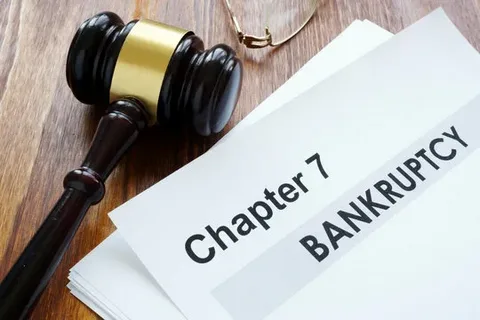When financial burdens become unmanageable, many individuals in Tampa seek relief through Chapter 7 bankruptcy. This legal option enables the discharge of qualifying debts, providing a fresh economic start. However, not everyone qualifies. While Chapter 7 can offer a straightforward path toward debt relief, certain applicants may be disqualified due to specific requirements and limitations.
This article examines the primary reasons why someone may be ineligible to file for Chapter 7 bankruptcy. It outlines how a bankruptcy lawyer can help determine the most suitable course of action.
The Means Test: Measuring Financial Eligibility
One of the most common reasons for disqualification is failure to pass the means test, which assesses whether your income is low enough to file under Chapter 7. The test compares your household income to the median income for a household of the same size in your state. If your income exceeds the median, additional calculations are used to determine your disposable income after allowable expenses.
Suppose the court determines that you have sufficient disposable income to repay a portion of your debts. In that case, you may be directed to file under Chapter 13 instead, which involves a structured repayment plan.
Previous Bankruptcy Filings
Another factor that can disqualify an individual from Chapter 7 bankruptcy is a history of recent filings. Specifically:
- You cannot file for Chapter 7 if you received a Chapter 7 discharge within the past eight years.
- You are also ineligible if you received a Chapter 13 discharge within the past six years, with some exceptions based on payment percentages to creditors.
These timeframes are in place to prevent abuse of the bankruptcy system and to ensure it remains available to those who genuinely need relief.
Fraud or Misconduct
Bankruptcy requires complete honesty and full financial disclosure. The court can deny your eligibility if it finds you to have committed fraud or engaged in misconduct. Examples include:
- Intentionally concealing assets or income
- Falsifying information on your bankruptcy petition
- Transferring property to friends or relatives to avoid including it in the filing
- Running up credit card debt immediately before filing with no intent to repay
Such actions may result in the dismissal of your case and can even lead to legal consequences that extend beyond the bankruptcy process.
Failure to Complete Credit Counseling
Federal law requires individuals to complete a credit counseling course from an approved provider within 180 days before filing for bankruptcy. The court may dismiss your case if you overlook this step or fail to document it properly. This counseling session is designed to help individuals evaluate alternatives and confirm their understanding of the bankruptcy process.
Additionally, after filing, a separate debtor education course must be completed before the court will grant a discharge. Even if your case is otherwise valid, failure to complete this second course may prevent the discharge of your debts.
Dismissal of a Recent Bankruptcy Case
If a previous bankruptcy case was dismissed within the last 180 days due to your failure to comply with court orders or because you voluntarily dismissed the case after a creditor sought relief from the automatic stay, you may be temporarily barred from filing again.
This rule serves to discourage misuse of bankruptcy filings as a delay tactic and to maintain the integrity of the legal process.
High-Income Earners with Disposable Income
While the means test typically addresses income eligibility, some high-income individuals may still be disqualified even if they technically pass the test. If it appears that a debtor can repay a substantial portion of their unsecured debts, the court may determine that Chapter 7 relief is not appropriate.
In such cases, conversion to Chapter 13 may be required, which involves repaying part of the debt over a three- to five-year period based on income and expenses.
Property That Exceeds Exemption Limits
Although this issue does not disqualify a person from filing, it may complicate the process. Chapter 7 involves the liquidation of non-exempt assets. The trustee may sell any property you own that Florida’s bankruptcy exemptions cannot protect to pay creditors. This condition isn’t a disqualification, but it may deter people from filing or make Chapter 13 a more attractive option.
How a Bankruptcy Lawyer Can Help
Navigating the legal requirements of Chapter 7 bankruptcy involves careful evaluation of income, assets, prior filings, and financial conduct. A bankruptcy lawyer will assess your specific circumstances and determine whether you qualify under current laws. If Chapter 7 is not the best fit, your attorney may recommend alternative solutions, such as Chapter 13 or debt negotiation.
Professional legal guidance also helps ensure compliance with filing requirements, completion of mandatory courses, and full disclosure to avoid potential denial or dismissal.
While Chapter 7 bankruptcy provides significant relief for many, successful filing requires the fulfillment of certain conditions. Individuals in Tampa seeking to resolve their debt through bankruptcy should consult a qualified bankruptcy lawyer to determine their eligibility and protect their interests. For trusted legal representation and a thorough review of your financial situation, visit Weller Legal Group, where experienced attorneys are available to assist you.

